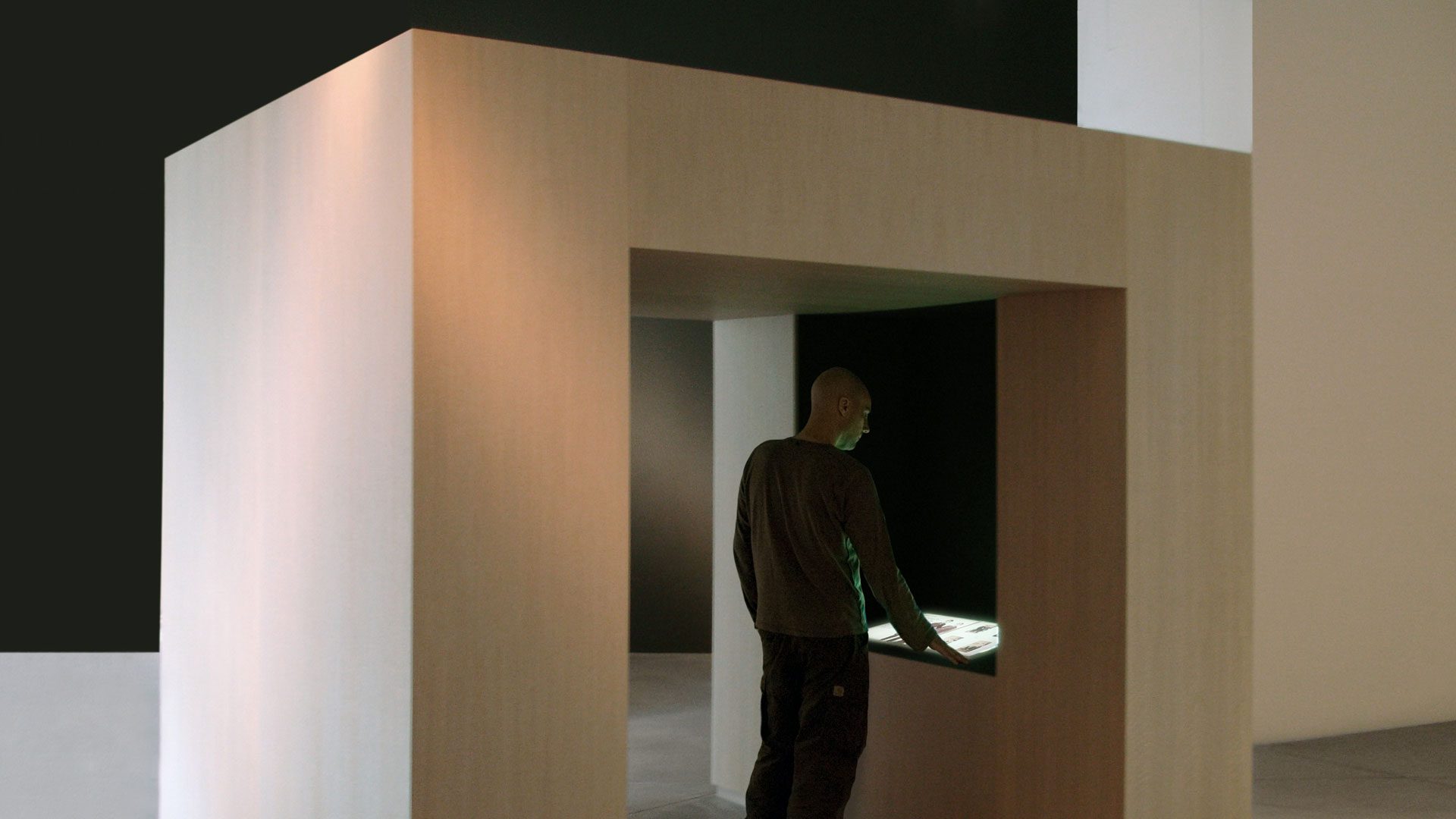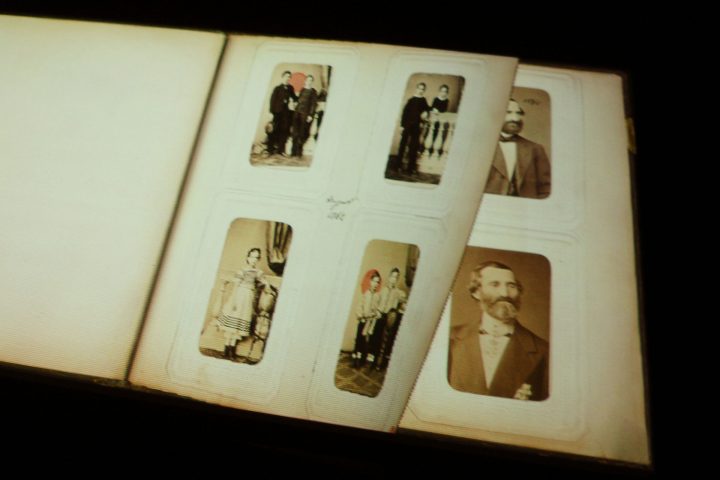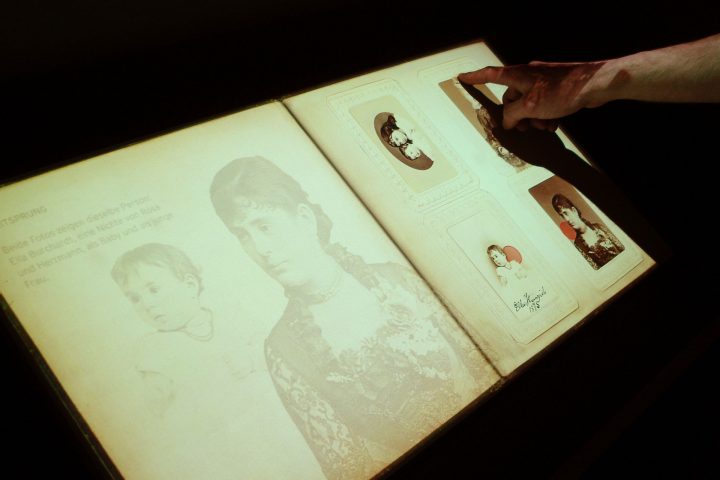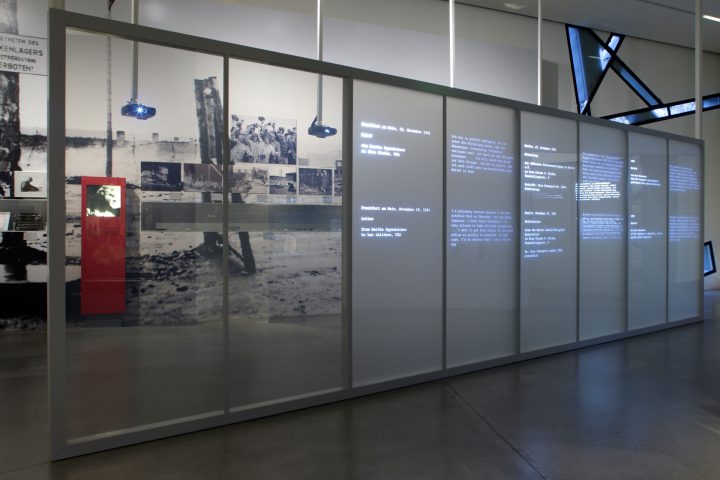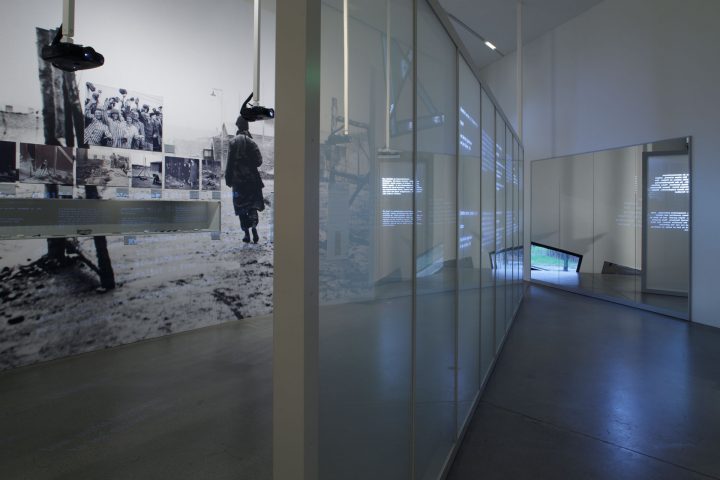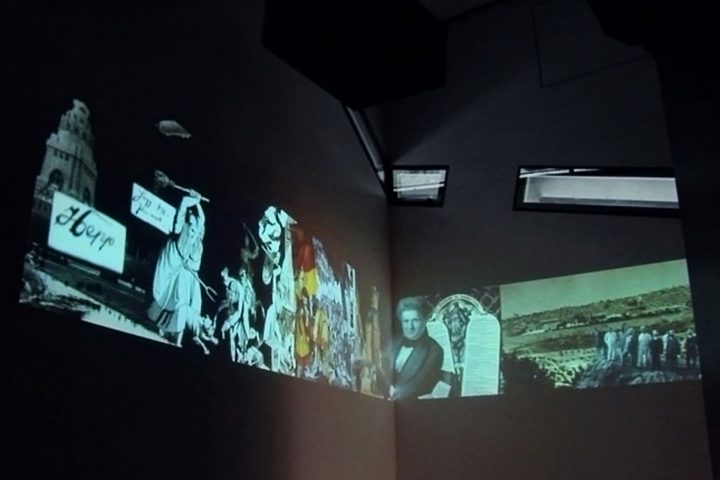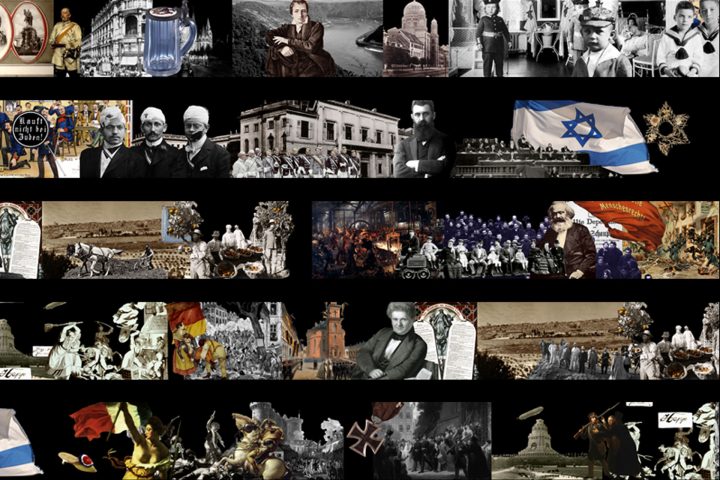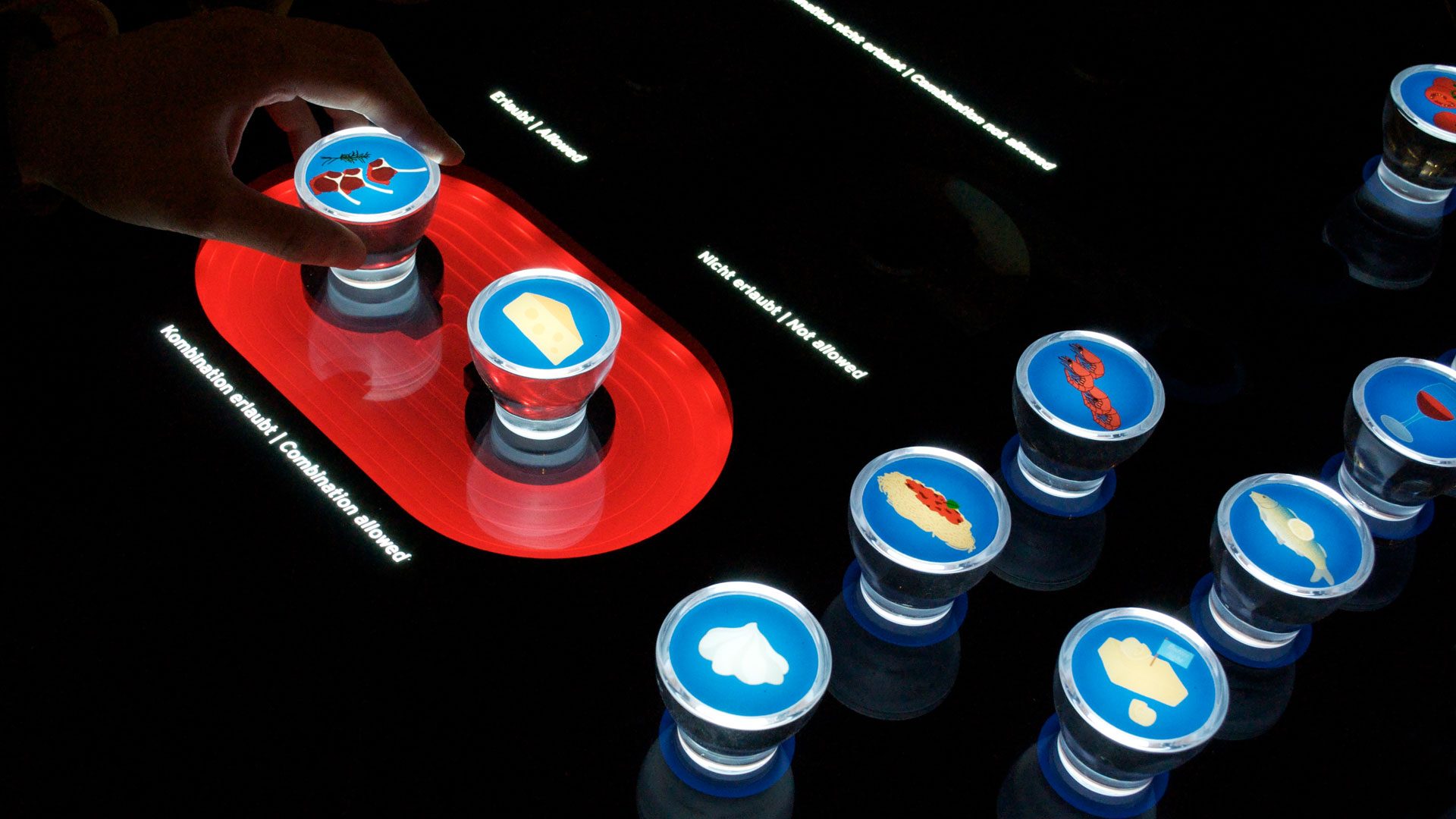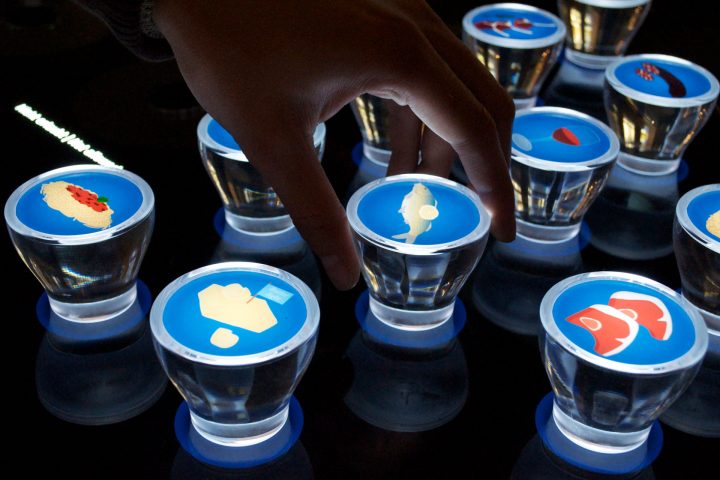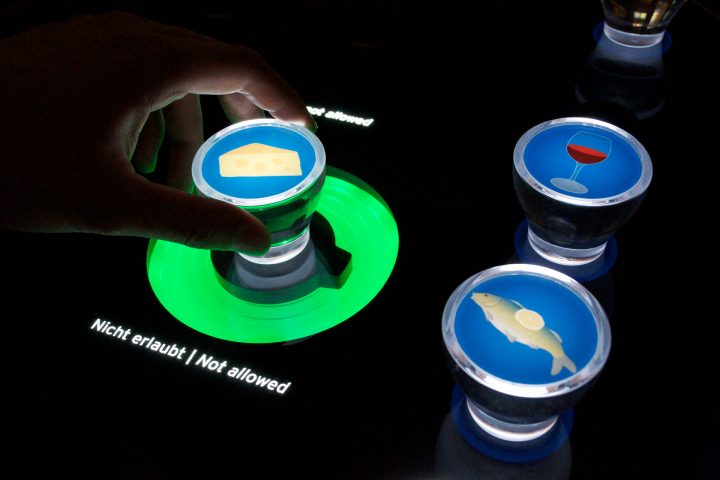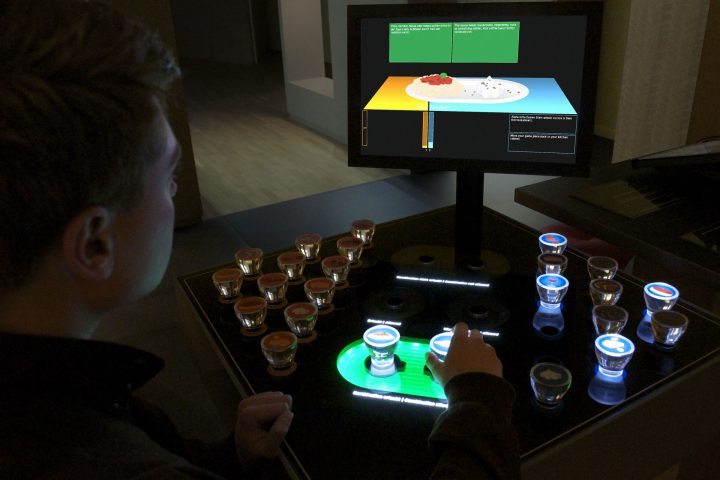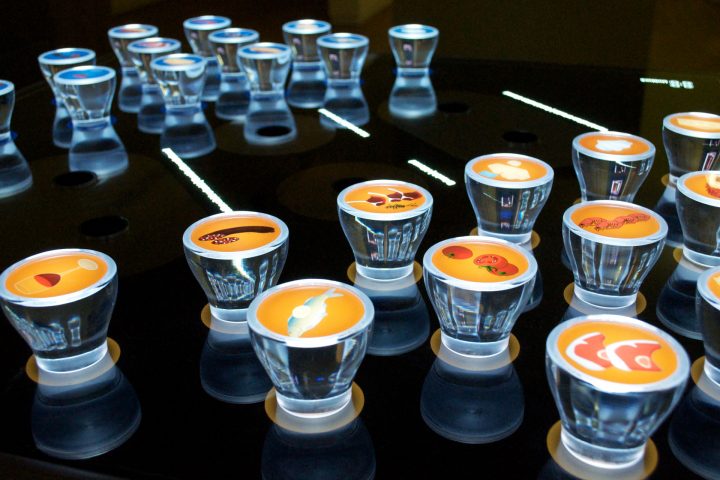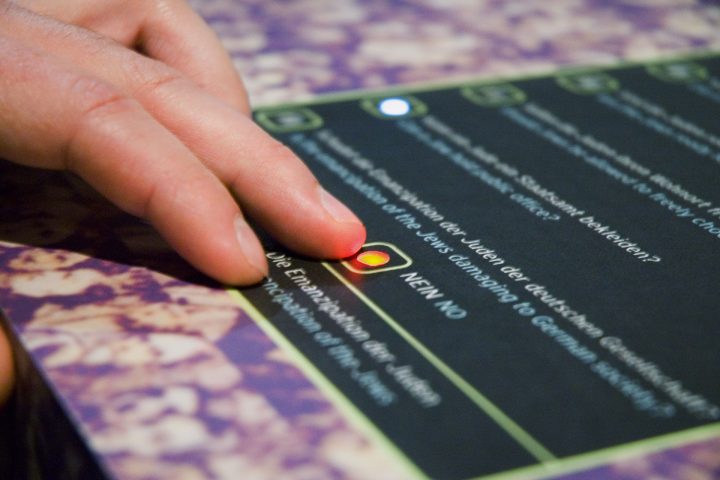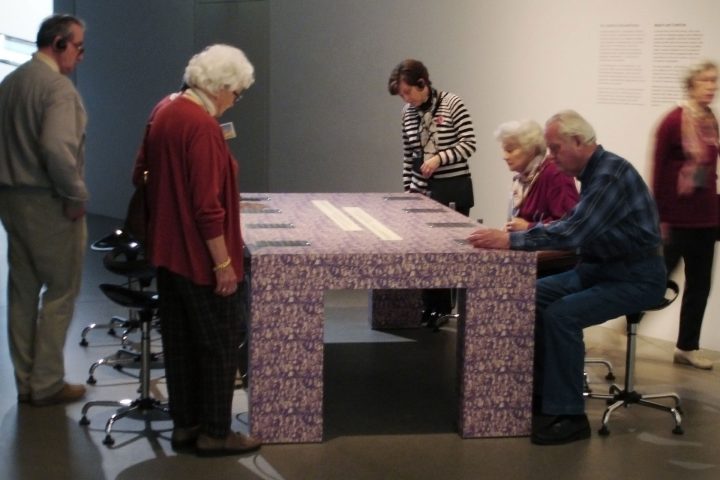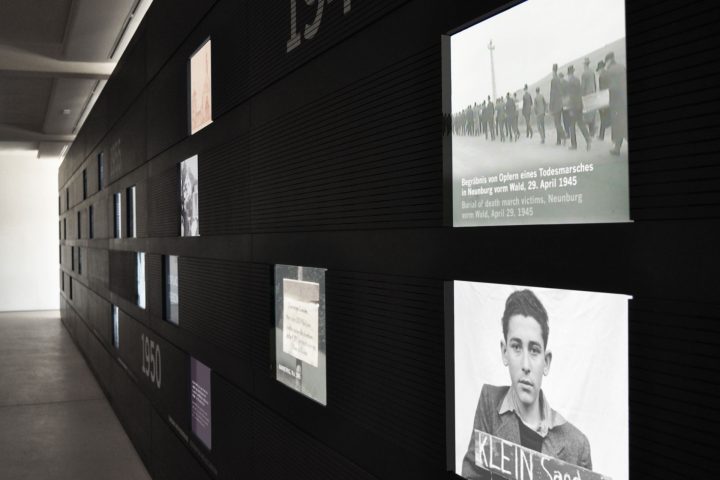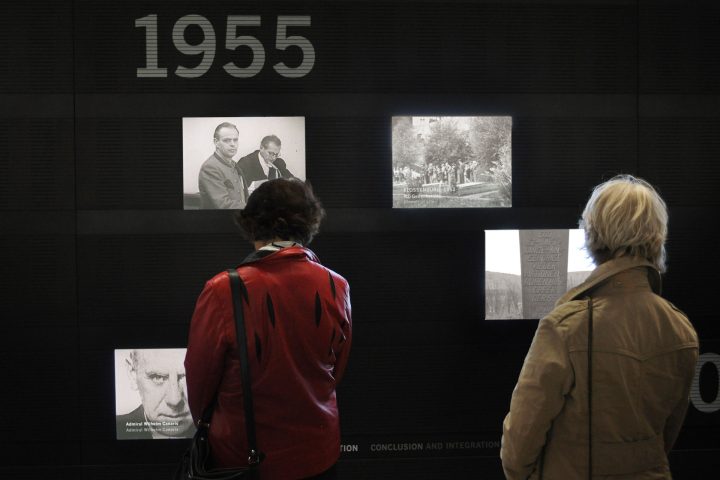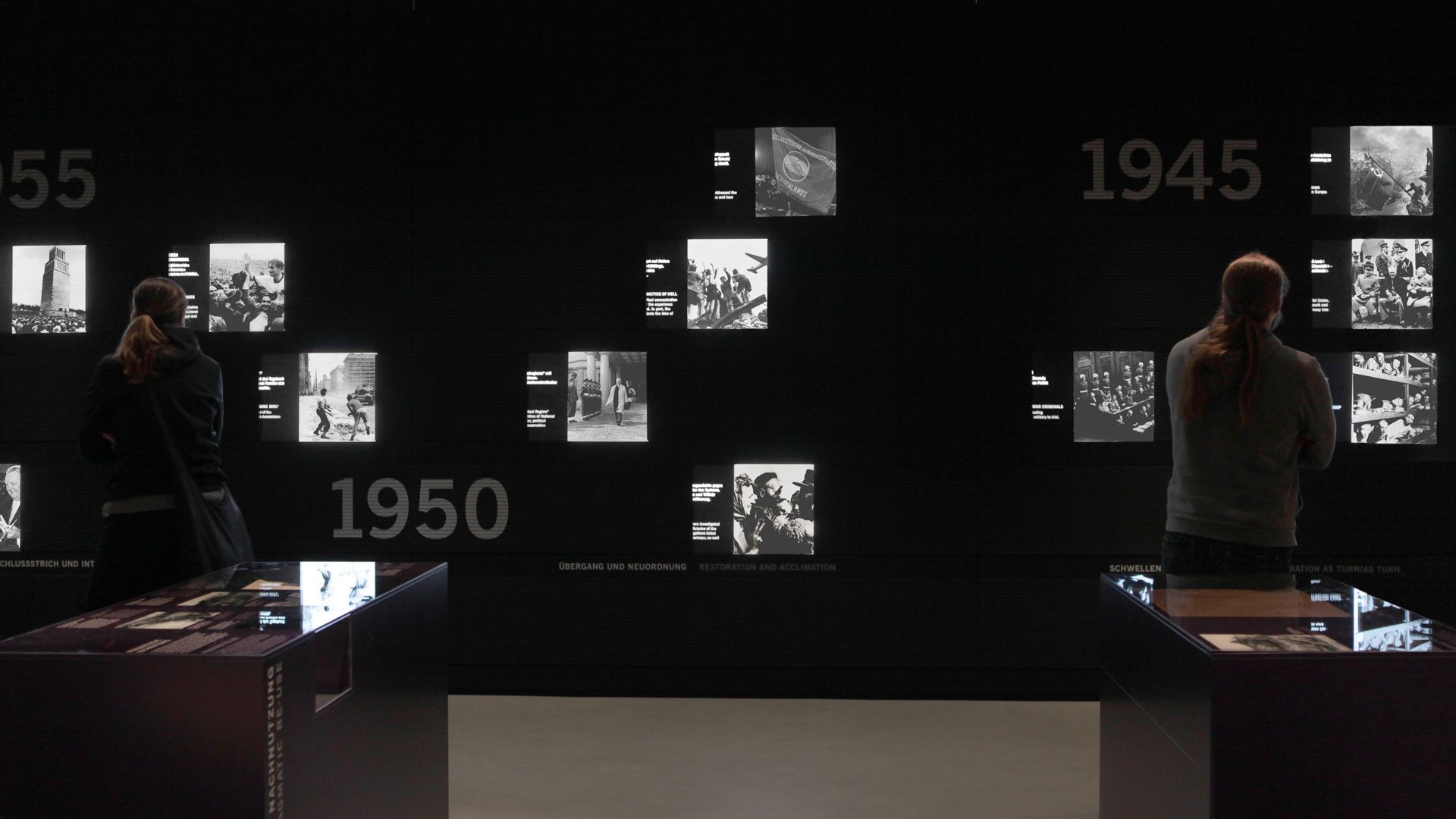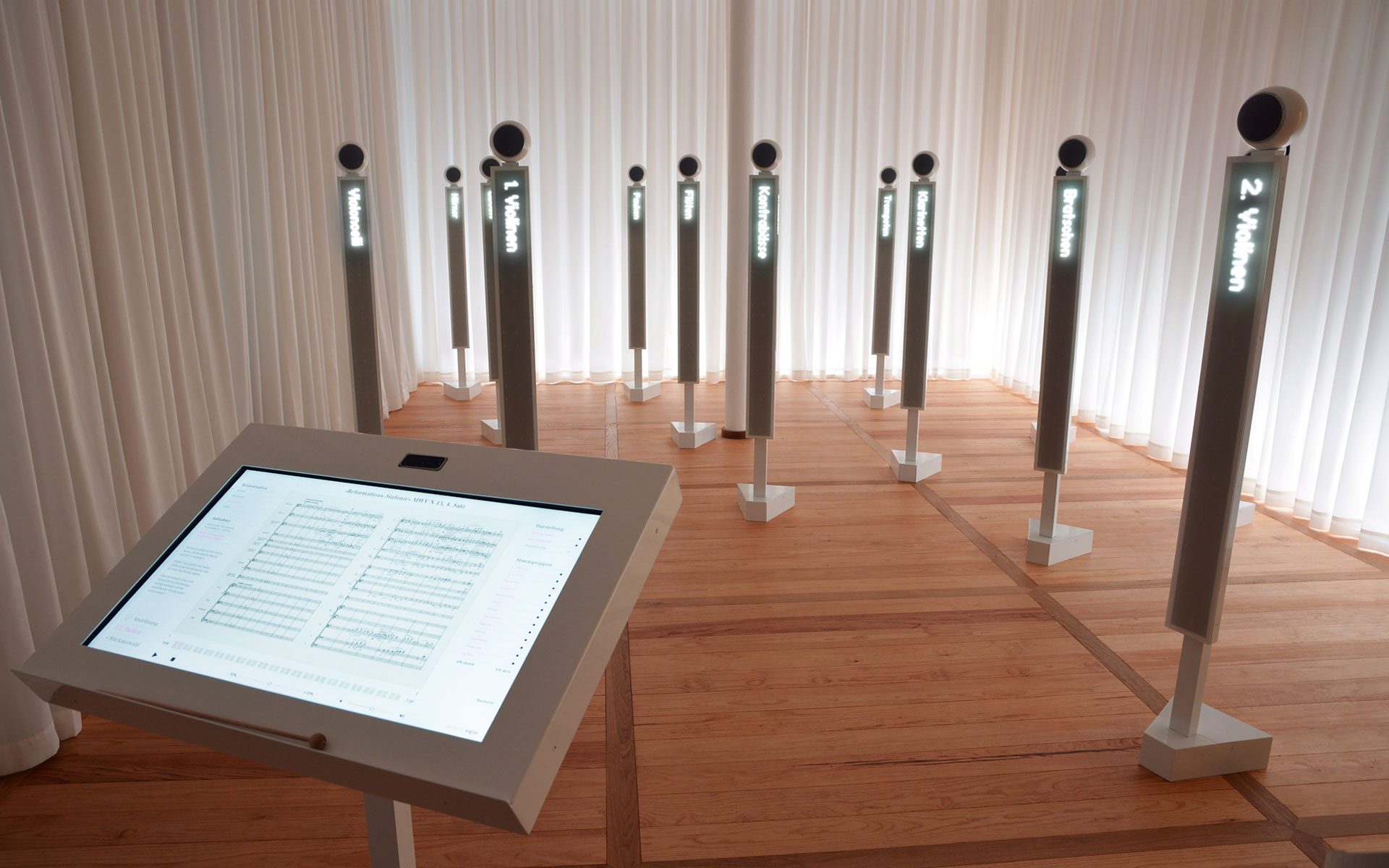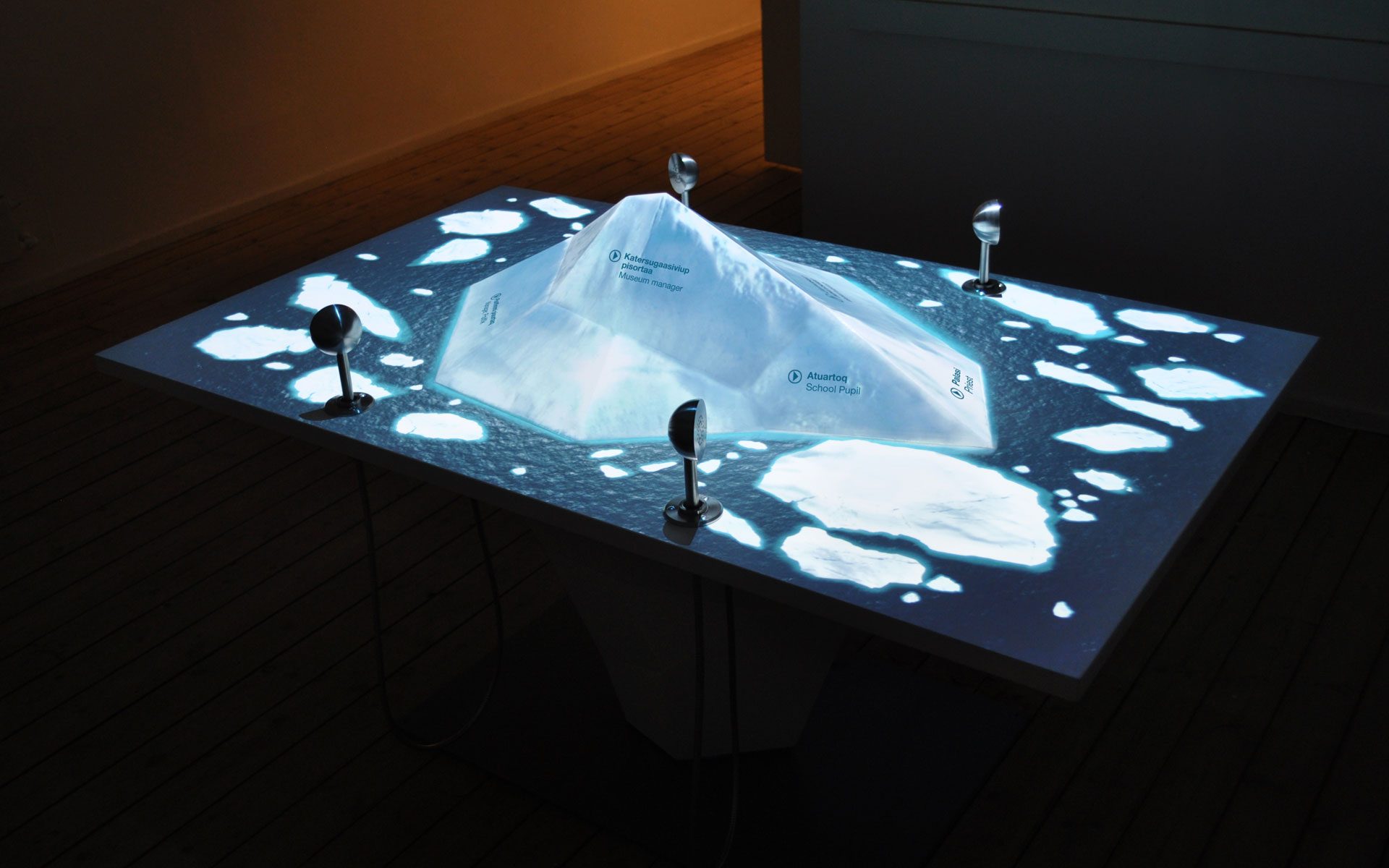HISTORY EXHIBITS – enhancing the experience
Implementing interactive technology transforms conventional story-telling concepts in a modern technology-driven manner. The accessibility and interactivity of the digital tool used for the historical exhibits allow museums to reach out to both younger and older visitors and to rethink history in a modern innovative way.
Permanent Exhibitions
Jewish Museum Berlin
Tuch + Technik Museum Neumuenster
Concentration Camp Memorial Flossenbuerg
Temporary Exhibitions
Kosher & Co at the Jewish Museum Berlin
Heimat und Exil
Clients
Jewish Museum Berlin
Haus der Geschichte Bonn
Tuch + Technik Museum Neumuenster
Concentration Camp Memorial Flossenbuerg
Read MoreRead Less
2005 – 2006 DIGITAL BOOK
Old books or photo albums are often banished to glass cabinets for display in museums. The pages cannot be turned and most of the book remains hidden to the visitor. The book cannot be read and its content is often lost to the public. This is where the interactive digital book comes into place. The original pages of the physical book are scanned, digitized and integrated into a software version of the book. The result is a digital book that can be projected onto a slightly angled panel complete with a touch sensitive surface.
The viewer can flip through the pages of the projected book with natural hand gestures, therefore allowing the book to be viewed in its entirety. Additional information is revealed when highlighted hotspots on the projected pages are touched.
Also, the user can zoom into pages of interest, getting a closer look. The old book is open to the public again.
2008 PRIVA TEXT – text projection onto intelligent glass screens
The PRIVA TEXT installation was developed together with media artist
Arnold Dreyblatt for the Jewish Museum in Berlin. Text snippets from letters of concentration camp inmates and written orders from Nazi officers are displayed via synchronized text tickers projected onto intelligent glass walls. The glass sheets can be switched from opaque to transparent to hide or reveal the visual content behind.
2005 PICTURE STRIP
The two-sided projected picture strip stretches across the entrance tunnel into the exhibition section German Jews – Jewish Germans of the Jewish Museum Berlin. The 8-meter wide video projection gives a brief overview of the themes that are to be presented in the following exhibition. The picture strip combines animated, layered and partially cutout imagery accompanied by sound effects and music.
2009 UNSTUCK – augmented board game
UNSTUCK is an analog, but at the same time digital game, which explores the relationship between food and faith. By plugging different tokens or combinations into a control panel, the player discovers what foods and beverages are allowed and what not in the respective religious context.
A monitor shows additional information about the products and the traditional religious rules about combining them. The game differentiates between religions (Jews and Muslims) by using dynamic lights and colors, also highlighting the progress of the game.
2005-2006 AUDIO TABLE
Unlike standard ON/OFF audio installations in museums or exhibitions the AUDIO TABLE features a sensor-controlled menu capability. The visitor can choose his language of choice and follow the Q & A scheme printed on the table to trigger a specific audio sample of interest.
Touch sensitive LED lights are embedded flat into the table surfaces. The LED lights flash in an animated pattern to guide the user step by step through the numerous possibilities on the menu. When a sensor LED has been touched with a finger, its light turns on consequently marking the selection that has been made. Each of the eight positions of the table is comprised of 25 different audio samples to choose from. The entire AUDIO TABLE exhibit runs on a miniPC integrated into the tabletop.
2010 TIMELINE – synchronized multi-screen wall
TIMELINE is a large-scale screen wall exhibit for the concentration camp memorial museum in Flossenbuerg. 25 chronological movies were edited and animated from existing historical photos and video footage.
The 25 movies and 50 additional static images and texts are synchronized and animated across 25 screens along 18-meter wide timeline wall. The exhibit is part of the permanent exhibition of the museum.
Exhibition concept and interior architecture by Berton/Schwarz/Frey
